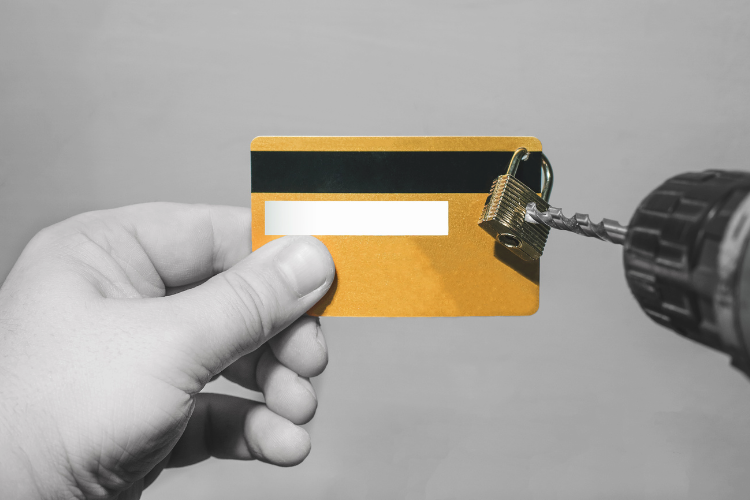
Is Credit Card Fraud a Serious Crime - Dallas Criminal Defense Lawyers for Credit Card Fraud Defense Explain
Research states that credit card fraud losses numbered around $16 billion in 2016, with the number of victims topping 15.4 million by Broden & Mickelsen Criminal Defense Lawyers.
/EIN News/ -- Dallas, April 22, 2021 (GLOBE NEWSWIRE) -- In recent years, the instances of credit card fraud have continued to increase. As a result, prosecutors take credit card fraud very seriously, and the penalties for a conviction can be tougher than you might realize. Furthermore, as federal law enforcement continues to develop more sophisticated tools for tracking down cyber criminals, it’s reasonable to expect that prosecutions for these types of offenses will rise.
How Common Is Credit Card Fraud?

Just about everyone uses credit in some form or another, and many people shop online or conduct other kinds of business with a credit card over the internet. Whether it’s paying a bill, signing up for a subscription service, or purchasing clothing from an online store, the majority of people use their credit card over the internet on a fairly regular basis.
Related: Types of Credit Card Fraud >>
According to recent data, credit card fraud was the most common kind of identity theft in 2019, and it has more than doubled since 2017. In 2019, data breaches resulted in the exposure of about 165 million personal records. Data from Javelin Strategy and Research states that credit card fraud losses numbered around $16 billion in 2016, with the number of victims topping 15.4 million.
Data breaches can lead to a cascade of problems, including cyber criminals opening fraudulent new credit accounts in your name.

Penalties for Credit Card Fraud
Credit card fraud can be prosecuted at the state level or the federal level or both. However, there are a few reasons why it’s common for these types of crimes to be prosecuted at the federal level.
First, cyber criminals that use a credit card to make a fraudulent purchase across state lines can be charged in federal court. Also, the federal government typically has a broader reach and more resources compared to the states. Federal cyber crime task forces may be better equipped to track down credit card fraud.
It’s also possible for someone to be charged with an array of crimes arising out of credit card fraud. For example, someone who uses a credit card to assume another person’s identity may be charged with crimes related to the methods they used to obtain the credit card information. This may include certain counterfeit access devices, such as skimmers.
The consequences an individual may face depend on the circumstances of their case, including the amount of money involved, the person’s criminal history, and even the age of the victim.
Defending Against Credit Card Fraud Charges
There are a number of potential ways to defend against credit card fraud and similar allegations. The types of defenses available to you will depend on the circumstances of your case, as well as which crime or crimes you have been charged with. The following are just a few of the possible defenses that may be applicable in your case, and this is by no means an exhaustive list. Contact a Dallas criminal defense lawyer for card fraud >
- Mistake – Credit card fraud can happen on a small scale, such as someone stealing a wallet and then using the cards inside. But it can also happen over the internet, with the victim and the cyber criminal never meeting or seeing each other. If law enforcement conducted an investigation that led back to you, they may very well have the wrong person. They might trace the fraud back to someone with the same name or a name similar to yours, but it’s not the correct person.
- Lack of Intent – Like other crimes, the prosecutor must prove that the person charged with credit card fraud had the intent to commit fraud. In some cases, there may not have been any intent to steal. For example, perhaps there was a simple misunderstanding between two people, with one person believing the other was okay with them using their credit card. In another example, maybe an employee was under the impression their employer had given them permission to use a company card for purchases, when that wasn’t the case. If the use of the card boiled down to miscommunication or a lack of understanding without any intent to commit fraud, this can be a defense in the case.
- Insufficient Evidence – The prosecution must meet a high burden to secure a conviction. If the prosecution can’t prove beyond a reasonable doubt that you engaged in credit card fraud, they can’t meet this standard.
- The Alleged Victim Consented – If you had permission to use a credit card, this can be a defense to credit card fraud. There are cases in which it may have been unwise to use a credit card for a purchase, but the accused had permission to have the card. There can be a wide range of cases in which there is a gray area in a case, and this can make it difficult for a prosecutor to satisfy the high burden of proof needed to secure a conviction.
Sources:
| Find us on Google in Dallas TX |
Telephone: (214) 720-9552 |

Broden & Mickelsen >> Texas Criminal Defense Lawyer for Credit Card Fraud Defense
https://www.brodenmickelsen.com/
***ATTORNEY ADVERTISING***
Prior results cannot and do not guarantee or predict a similar outcome with respect to any future case.
EIN Presswire does not exercise editorial control over third-party content provided, uploaded, published, or distributed by users of EIN Presswire. We are a distributor, not a publisher, of 3rd party content. Such content may contain the views, opinions, statements, offers, and other material of the respective users, suppliers, participants, or authors.


